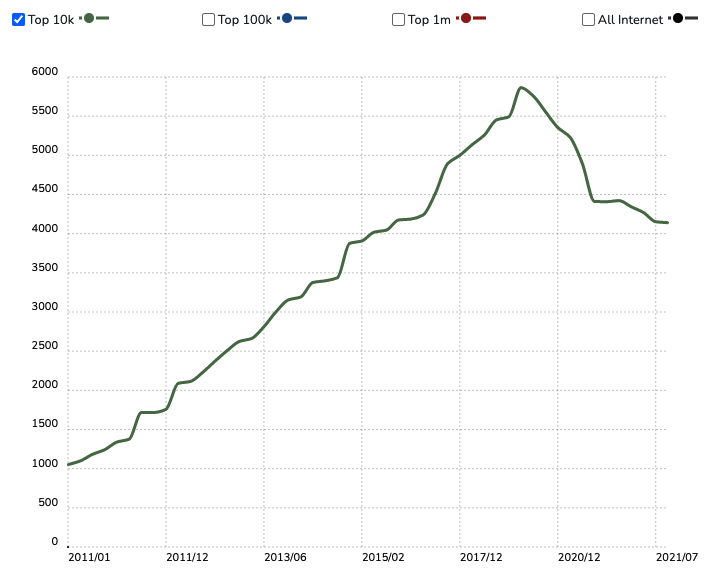PHP (Laravel)
Symfony is an open-source PHP framework (with standalone components) used for the backend of advanced web applications, such as APIs, microservices and platforms.
Who uses this technology?
General usage
PHP is the most widely used server-side programming language, due to its versatility in adding functionality to web applications. In use since 1994, it can be considered a mature programming language, but that doesn’t mean outdated though. The PHP development team constantly adds new features to keep up with the latest enterprise-friendly trends, such as the ability to integrate new technologies like GraphQL and WebSockets.
So why use a framework like Symfony instead of vanilla PHP?
In a word, modularity. Prebuilt components reduce the need for repetitive coding of basic functionalities. Developers can thus deploy sites quickly and apply rapid iteration as part of an agile approach.
Symfony also offers:
- Performance. It’s one of the fastest PHP frameworks.
- Scalability. It’s well-structured and maintained, making it easy to extend with more servers.
- Flexibility and interoperability. Standalone components (e.g. validation, forms, password hashing, messaging) can be integrated into existing platforms without using the full framework. The framework itself is highly customisable.
- Robust. The framework enforces good coding standards with built-in best practices. It also includes testing and debugging tools.
Popularity
PHP is used by 79% of websites whose server-side technology is known. More than 40% of the 10,000 most visited sites use PHP.
 Source: Builtwith
Source: Builtwith
Symfony, first released in 2005, has a huge community of 600,000 developers in 120 countries.
Marketplace benefits
Popular platforms such as DailyMotion and Spotify have proven that Symfony can meet the scaling challenges of any marketplace. It’s flexibility makes it perfect for specific business flows, while it’s modular structure supports incrementality, i.e. adding functionality as needed.
As a full-stack framework, Symfony is ideal for complex marketplace applications with many functionalities. Its learning curve is steeper than other PHP frameworks though, which requires technically adept developers.
